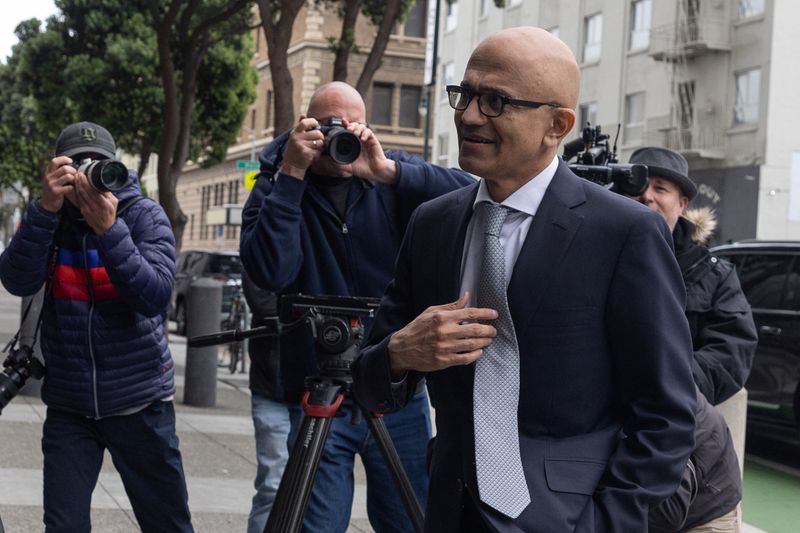By Diane Bartz
WASHINGTON (Reuters) -The judge hearing the U.S. Federal Trade Commission's fight against Microsoft (NASDAQ:MSFT)'s planned purchase of "Call of Duty" maker Activision Blizzard (NASDAQ:ATVI) on Thursday pressed government lawyers about the data behind their arguments and asked why there was so much fuss over "a shooter video game."
The Federal Trade Commission has asked the judge to stop the proposed $69 billion acquisition because, it argues, it would give Microsoft exclusive access to Activision games including "Call of Duty," one of the best-selling games of all time.
That would leave Nintendo and Sony (NYSE:SONY) Group out in the cold, the FTC has said.
Xbox console-maker Microsoft has pressed for a decision before the July 18 termination date for the deal, and a ruling could come as early as next week. The deal had been announced in January 2022 and the FTC sued to stop it in December last year.
Judge Jacqueline Scott Corley in San Francisco pressed FTC lawyers on where their economist got the data to show the deal would harm consumers.
The FTC has said that if Microsoft bought Activision, Microsoft would have the incentive and the ability to harm competition in markets related to consoles, subscription game services and cloud gaming.
"The harm here is we think is substantial in locking up Activision content," said FTC lawyer James Weingarten (NYSE:WRI).
After an extended back and forth over how the FTC came to its conclusions, Corley said: "All this is for a shooter video game."
Microsoft's Beth Wilkinson, who argued that "Call of Duty" was not essential to any gaming platform, said the deal would mean the game would be licensed broadly.
"More consumers are going to get the game. And that's good for gamers, but it's also good for Microsoft," she said.
To address the FTC concerns, Microsoft has agreed to license "Call of Duty" to rivals.
Microsoft CEO Satya Nadella sought to allay antitrust concerns on Wednesday by saying the company would have no incentive to shut out Sony's PlayStation in order to sell more Microsoft Xbox consoles.
"It makes no economic sense and no strategic sense," Nadella said.
Corley has been asked to pause the deal so the agency's in-house judge can rule. In the past, the side that lost in federal court often conceded and the in-house process was scrapped.
The FTC, which enforces antitrust law, has taken a harder line on mergers during the Biden administration to protect consumers from being disadvantaged by powerful corporations.

Microsoft's bid to acquire the "Call of Duty" videogame maker also faces opposition from British competition authorities.
Canada is still monitoring the planned transaction.